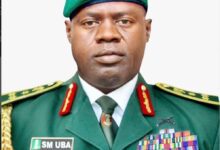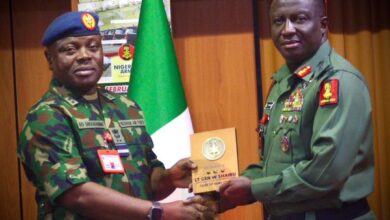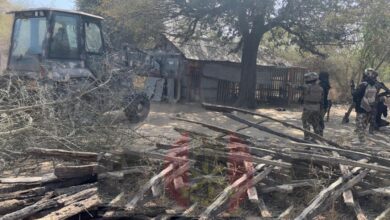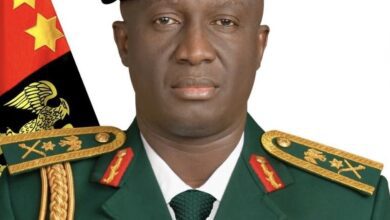
Lebanon’s Army Chief, Joseph Aoun, has been elected president after a two-year vacancy of the position.
Parliament Speaker Nabih Berri, made the announcement on Thursday after 99 lawmakers out of 128 backed Aoun’s candidacy.
Supporters erupted in celebration in his home village of Aishiyeh in south Lebanon, where residents had gathered from the morning in front of the church which was adorned with Lebanese flags and his portrait, an AFP reporter said.
Aoun, who turns 61 on Friday, arrived inside parliament to swear his oath to general applause, wearing a dark suit and bright blue tie instead of his usual military uniform.
“A new phase in the history of Lebanon begins today,” he told the chamber.
Aoun faces the daunting tasks of overseeing a ceasefire on the Israeli border and naming a prime minister to lead reforms demanded by international creditors to save the country from the worst economic crisis of its history.
The Mediterranean country has been without a president since the term of Michel Aoun (not related to his successor) ended in October 2022, with tensions between the Iran-backed Hezbollah movement and its opponents scuppering a dozen previous votes.
International pressure has mounted for a successful outcome with just 17 days remaining in a ceasefire to deploy Lebanese troops alongside UN peacekeepers in south Lebanon after a Hezbollah-Israel war last autumn.
However, lawmakers from the pro-Hezbollah bloc voted blank in the first round of the vote on Thursday morning, a source close to them said, leaving army chief Aoun short of the required two-thirds majority to win outright.
The source said representatives from the bloc met Aoun at the parliament during a break before lawmakers returned for a second vote.
Several lawmakers in the second round still objected to what they see as foreign interference in the vote.
In protest, some rendered their ballot void by voting for “sovereignty and the constitution”, a reference to the fact that Aoun’s election would have technically required a constitutional amendment.
Aoun, Lebanon’s fifth army commander to become president, and the fourth in a row, was widely seen as the preferred pick of army backer the United States, as well as regional heavyweight Saudi Arabia.
Pope Francis on Thursday expressed hope that Lebanon could “possess the necessary institutional stability … to address the grave economic and social situation.”






